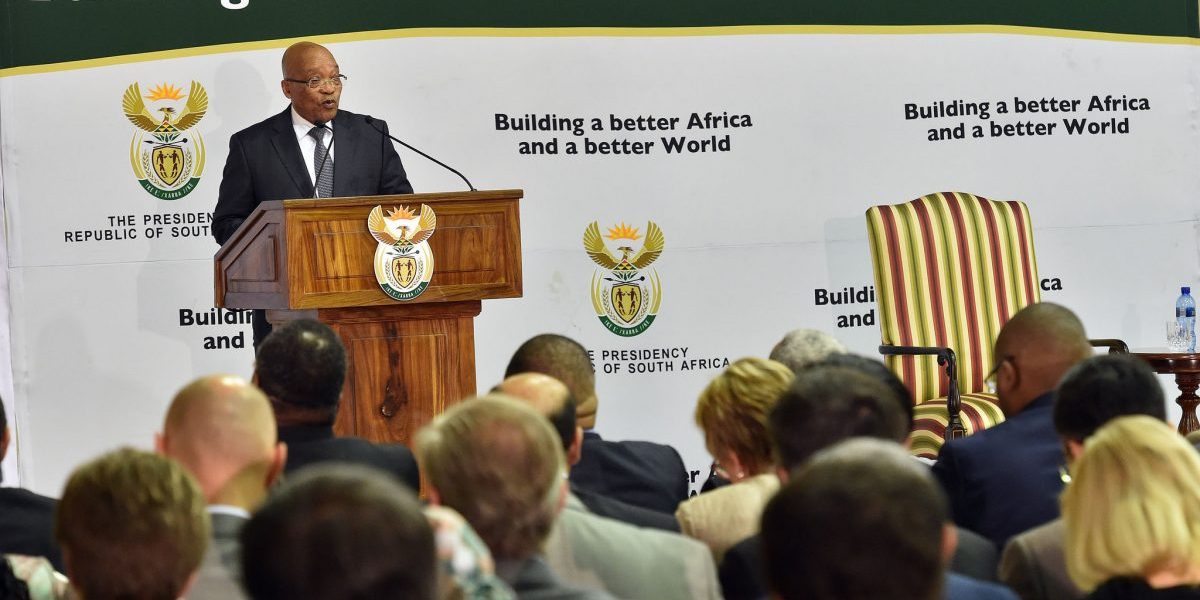According to the newly released 2009 African Governance Report (AGR-II), put together by the United Nations Economic Commission for Africa, it seems that many of the continent’s newly-established democracies are suffering from an authoritarian hangover.
Overall, progress is marginal at best and mixed, and worryingly, South Africa is sliding slowly down the ranks. South Africa has many internal problems that it seems not willing or able to solve, which bring into question its aspirations for leadership in governance in Africa.
How much governance change can we really measure in four years? The answer is: not much. The AGR-II, which covers 32 African countries, states that compared to the findings of AGR-I in 2005, indicators on political representation, independence of the electoral process and power distribution remained flat across the continent as a whole, while on political party freedom and security the index reveals a one percent slide, and an increase of three percent on the rule of law as well as on the independence of civil society and the media.
Overall, no dramatic shifts either way. In only three countries did more than half of the experts surveyed agree that the democratic framework is accepted by all social and political groups, suggesting that democracy has shallow roots. Limited respect for the rule of law and constitutionalism is evident in many African countries, and written rules are undermined by unwritten practices.
How then, does South Africa stack up against its African counterparts? Truth be told, although it is consistently in the top 10 on AGR-II’s rankings, there are some rather worrying trends. In terms of acceptance of a democratic framework, South Africa ranks tenth, with less than 38 percent agreeing that such a framework is accepted by all. Furthermore, it is behind states like Sierra Leone and the Republic of Congo, which
South Africa is ranked at number seven on respect for the rule of law, with less than half the experts agreeing that there is adherence in the country. A similar percentage believes that the police and government always respect human rights in South Africa, placing it behind states like Benin and Morocco. On corruption, South Africa is ranked as the fifth least corrupt in the executive branch, but eighth in the judiciary and tenth in the legislative branch, coming in behind Malawi and Tunisia.
The fact that South Africa, a leading state in Africa and one that often seeks to promote good governance and democracy in the rest of the continent, is not in pole position in these rankings is worrying.
It is important to bear in mind that the AGR-II is mostly based on expert surveys, grounded in opinions and perceptions. One could therefore argue that surveying a different set of experts might have produced a very different report. Yet other international governance rankings support AGR-II’s findings. The country has been slowly losing ground. According to a November 2009 report published by the Democratic Alliance, South Africa has dropped 10 places in Transparency International’s Corruption Perceptions index; five spots in the African Governance Index; 24 places on the Global Peace Index; and two places in the Index of Democracy, which also classified it as a “flawed democracy.”
These figures should ring alarm bells. South Africa faces many governance challenges. These were highlighted in the country’s 2007 African Peer Review Mechanism report, and include “unemployment rates; capacity constraints and poor service delivery; poverty and inequality; land reform; violence against women and children; HIV/Aids pandemic; corruption; crime; racism and xenophobia; and, managing diversity.”
Combined with the fact that South Africa has been making international and African headlines for all the wrong reasons lately (corruption trials of high-standing public figures, xenophobic attacks, refusal of a visa to the Dalai Lama, accusations of abuse of state organs), sinking rankings negatively affect its international image.
With the plethora of governance reports, indices, monitoring frameworks and tracking tools in Africa, one can only wonder why governance on the continent is not improving at a faster rate. While the AGR-II tells us little that’s new, it echoes what is being said by others: governance in Africa is variable and South Africa is doing slightly worse than it used to.
Although a long way from catastrophic, this trajectory is going the wrong way. If South Africa wants to be a continental leader in governance matters and help others, it first needs to get its own house in order. It is important that the Zuma administration tries to turn this trend around.







